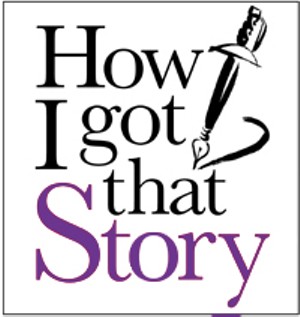Alan Prendergast is Denver District Attorney Carol Chambers' supervisor -- unofficially.
"DAs aren't subject to the same oversight as police. Who can supervise a district attorney? Nobody. You either don't elect them or don't re-elect them -- or they're removed by the judiciary somehow," Prendergast says. "There aren't checks and balances with DAs, let's put it that way."
"The Punisher" and "A Thumb on the Scales" appeared in
Westword, where Prendergast has been a staff writer for over two decades. The stories examine Chambers' use of Colorado's "habitual offender" statutes, which give prosecutors leeway to seek longer sentences for repeat offenders regardless of the nature of the crimes. Prendergast says Chambers -- who has used the habitual offender law zealously against petty criminals -- employs the law differently than any other prosecutor he has seen.
Where did you get the idea for the story?
Chambers was already in the news for having been involved in a number of controversies with police and defense attorneys. She was being investigated for her interference in a civil case. Overall, this seemed like a much larger issue that was being ignored largely because it was difficult to talk about. And the people that she was going after aren't people that are naturally sympathetic to readers. They are criminals, but the question is whether you should use this kind of law against these chronic but low-level offenders. I guess there was also enough level of concern. I heard about it through attorneys that were representing some of these people and through inmates in the jail who couldn't believe what some of these guys were up against.
What was your biggest challenge?
The challenge was trying to do this long, complicated kind of piece and have readers care about it because, number one, these aren't easily sympathetic people. And number two, it's kinda hard to understand sentencing. How can someone steal a couple of hundred dollars worth of CDs, or something like that, and end up facing 40 years in prison?
Why did you decide to dig deeper than the dailies?
I think sometimes the temptation with weeklies is to shy away from stories that the dailies are already doing. But, often those stories in the dailies are poorly covered, or there are just a lot of questions left unanswered. I had a lot of questions that weren't being answered in the daily coverage. Clearly, none of them were focusing on this particular issue, which I thought was in many ways -- in terms of the costs involved and the impact on people's lives -- going to have more of a long-term effect than some of these controversies. I basically decided that, although it was a daunting thing to do, it was worth doing.
What was your stance on the DA's habitual sentencing practices?
My view comes out through a lot of these individual stories. I don't think that it's bad for an article to have a point of view. It seemed to me that the important thing was to try to get a sense of who were the people who she was putting away -- and what they had actually done. The best way to do that was, partly, to hang out in the courts and get some of the history and interview some of these people. It's kind of unnerving when you see someone who has that much power as a prosecutor and seems to be somewhat detached from the consequences of these kinds of sentences. Personally, I don't think she knew much about these people, so that's what I was trying to get at. Her office did not even have numbers on how many of these people were given habitual sentences. I went to the state courts and did some number crunching to come up with the figures of their reports, which they then agreed with. They did't seem surprised by it, but it was easily twice what any other jurisdiction was trying to do. The fact that she doesn't even have those kinds of numbers tells me that I don't think she looks at these individual circumstances very much.
What did Chambers think of the story when it came out?
I have since done many other stories regarding this prosecutor and she has continued to take my calls. She continues to be interviewed and even wrote a letter complimenting me about this one story -- not this one, obviously. I think she's aware that this policy's being scrutinized and that's a good thing; as journalists, that's what we’re supposed to do. Frequently, these sorts of things get out of control because nobody's looking. I can't say it's dramatically altered what she's doing, but it certainly has given her a sense that someone may question the rationale for it.
Read the stories that garnered Prendergast a first-place finish in News Story -- Long Form (circulation 55,000 and over):
"
The Punisher"
"
A Thumb on the Scales"
Part of the 2008 "How I Got That Story" series, in which Academy for Alternative Journalism fellows reveal the processes of the writers and editors who won first-place AltWeekly Awards. These interviews also appear in Best AltWeekly Writing and Design 2008.

